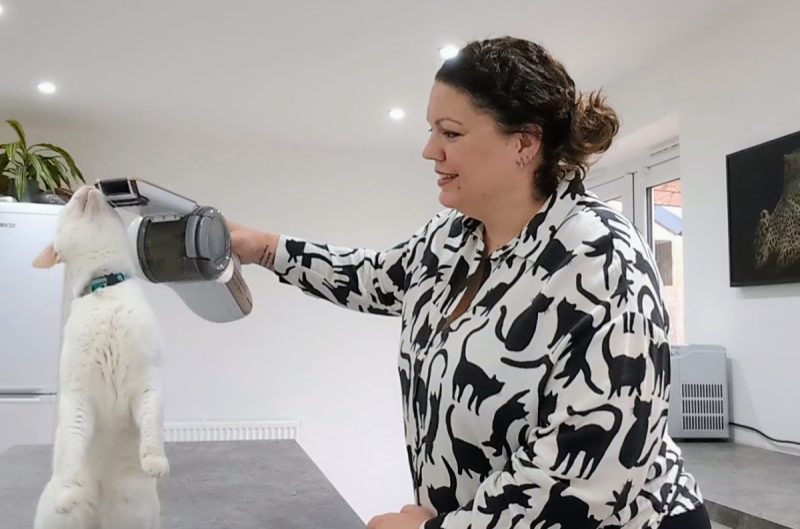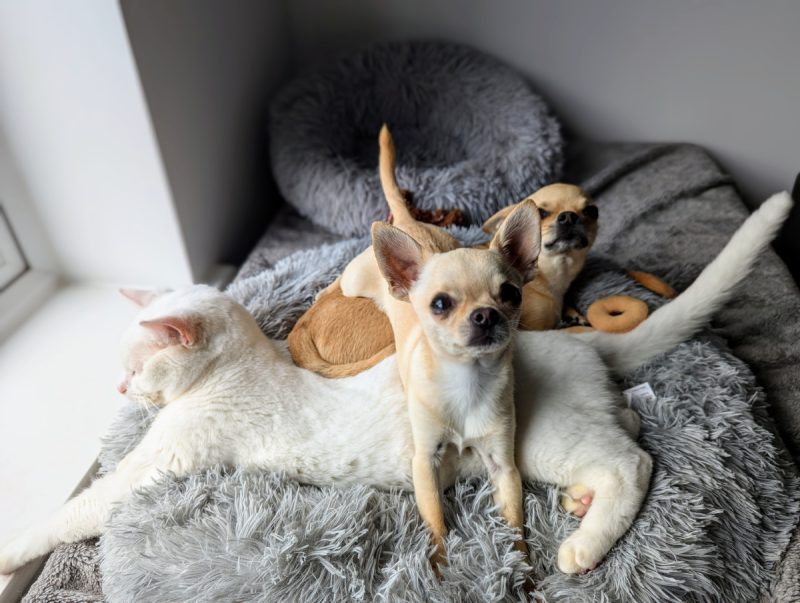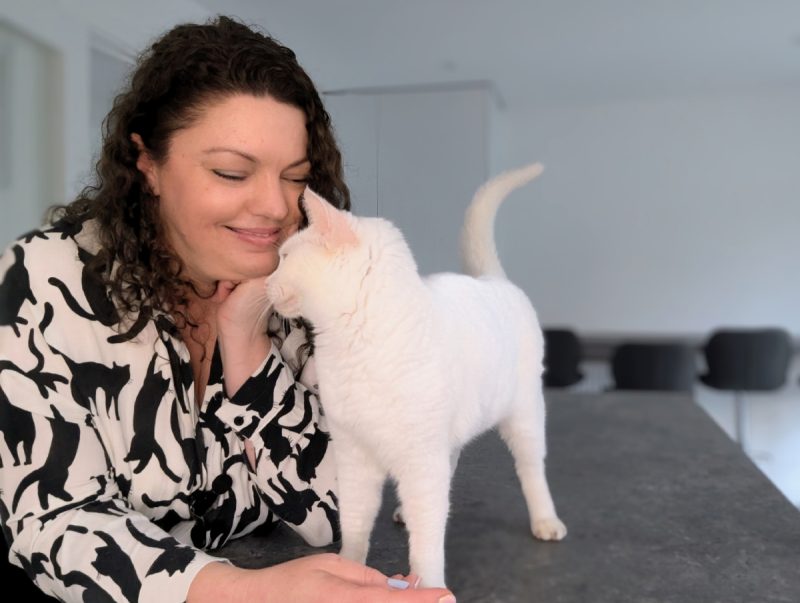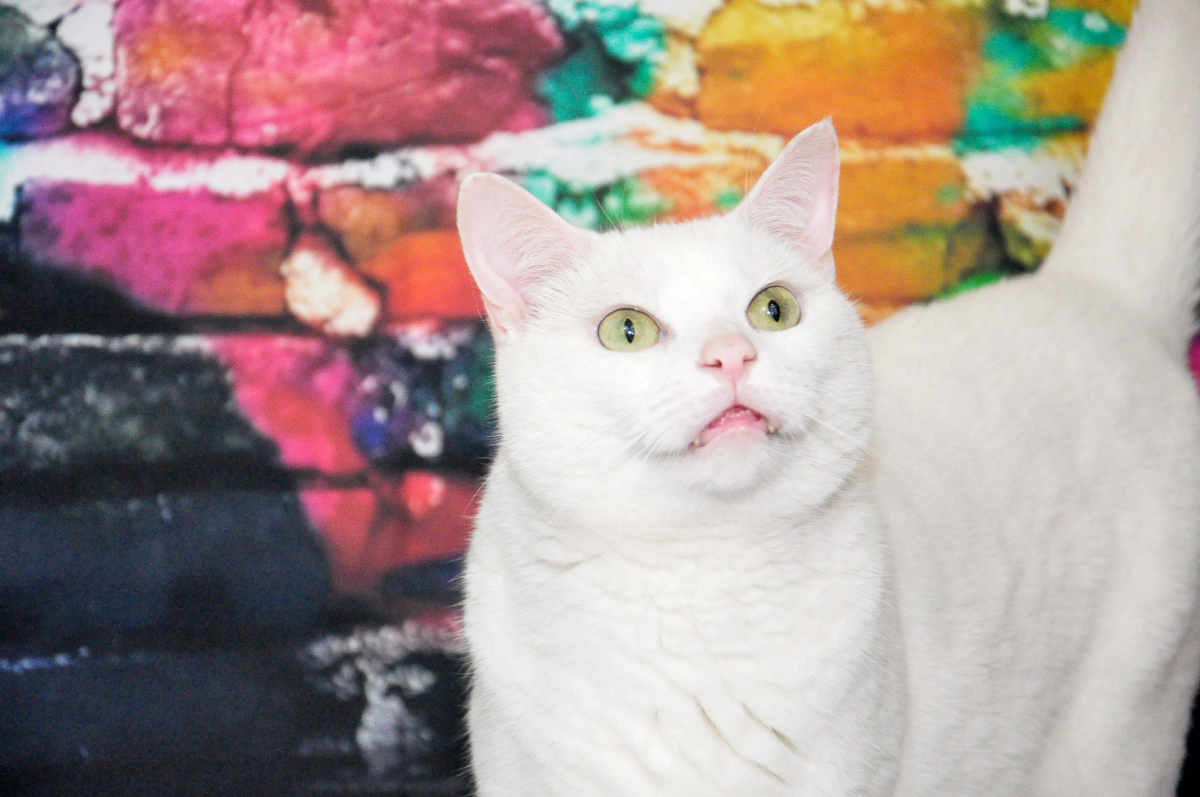Hi, I’m Dr. Karyn! Read my introduction to learn more about me and meet my five hilarious cats: Clutch, Cyril, Alex, Zelda, and Zazzles.
You may have heard people say that white cats are often deaf, and if you’ve seen my video about my white cat’s love of being vacuumed, you’d be forgiven for assuming that he was at least hard of hearing. However, not all white cats are deaf, and Clutch definitely isn’t either.
Clutch is one of the most laid-back, unflappable cats I’ve ever known. Our shepherd, Kodah, can stand beside him, barking like mad at a delivery person, and Clutch will barely even open an eye. Not only does he enjoy being vacuumed, but he will come running when I am using it, meowing until I stop mid-clean to give him a quick going over.
Clutch also doesn’t follow the feline edict that cats must immediately jump off your lap if you so much as lean in the wrong direction. He is so stubborn about being removed from his comfy position that I will almost be standing up completely before he reluctantly dismounts, and when I come back, he returns to his position before my bum even hits the seat.
He is everything that cats usually aren’t.

It’s In the Genes
You’ll notice that Clutch’s eyes are a light green color, which is less common than yellow or amber but not as unusual as blue, copper, or orange eyes. The gene that determines traits like eye and coat color is located on the feline chromosome B1, with the exception of orange coat color, which is found on the female X chromosome. The location of the blue-eyed allele on the gene means that it can sometimes affect the development of hearing, particularly when paired with the allele that blocks pigment expression, resulting in a white coat.
This is why white cats with blue eyes are often deaf, while cats like Clutch have no hearing impairment at all.
Not Deaf, Just Unflappable

Clutch usually prefers the company of our dogs, despite the fact that they aren’t always the gentlest of companions. Even when the ever-boisterous Kodah tries to engage Clutch in play by jumping at him, the biggest reaction he’ll receive is a slightly grumpy meow.
Because Clutch came to us as a stray when he was around 12 months old, we have no way of knowing what his early kittenhood was like, but I have to imagine that it must have been noisy, chaotic, and full of dogs to have shaped Clutch into the chilled out, relaxed feline we all know and love.
It’s Not All In the Genes

I recently did some research into the cloning of pet dogs and cats, and my verdict was that it would most likely result in a very expensive ($50k +) disappointment. In fact, because the expression of coat pigment and pattern are affected by the kitten’s development in the womb, the first cloned cat didn’t even look like her ‘mother’!
If I could be sure that personality and temperament were all down to genetics, I would consider taking out a second mortgage to be able to have a lifetime worth of Clutch. Unfortunately, his unique character and quirks are far more likely to be the result of his life experiences, and only partly influenced by his genetic makeup.
And so, I must relish every moment I have with my dear – not deaf – white feline, for as long as I am lucky enough to have him.

This article is a part of Dr. Karyn’s series with her five hilarious cats.
Source link

